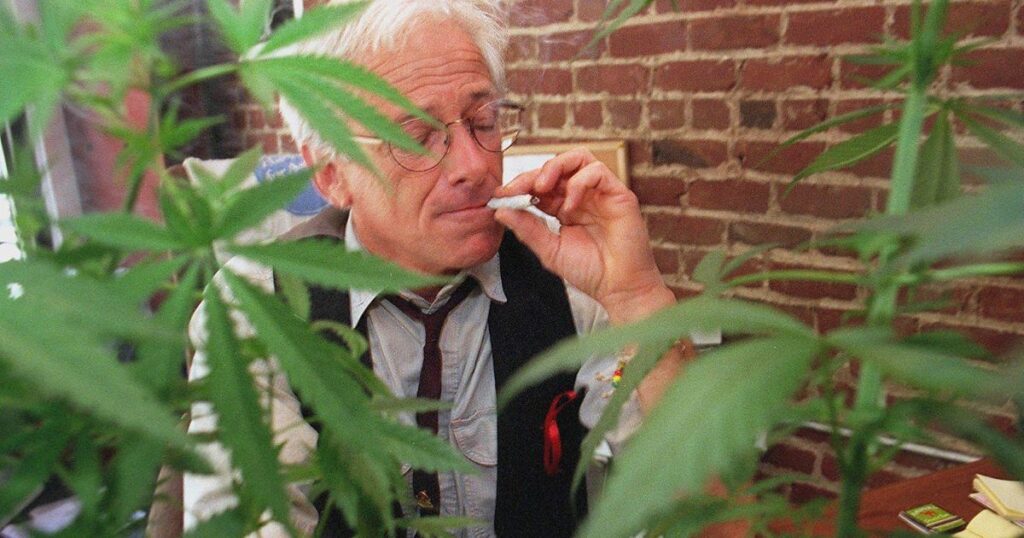Dennis Peron is often called the “Father of Medical Marijuana,” and for good reason. His work paved the way for legal cannabis as medicine, not just in California, but across the world. Without Dennis, there would likely be no Proposition 215—California’s landmark Compassionate Use Act of 1996—which made it the first state in the U.S. to legalize medical cannabis. But his story is far richer than a single piece of legislation. It’s a story of love, loss, and a relentless fight for human dignity.
From the Bronx to the Castro
Born in the Bronx in 1945, Dennis grew up in a working-class Italian family before joining the Air Force and serving in Vietnam. Like many soldiers of his generation, he discovered cannabis overseas, both as recreation and as a salve for the horrors of war. When he returned to the U.S., he chose San Francisco as his new home—drawn by its vibrant counterculture and the promise of living openly as a gay man.
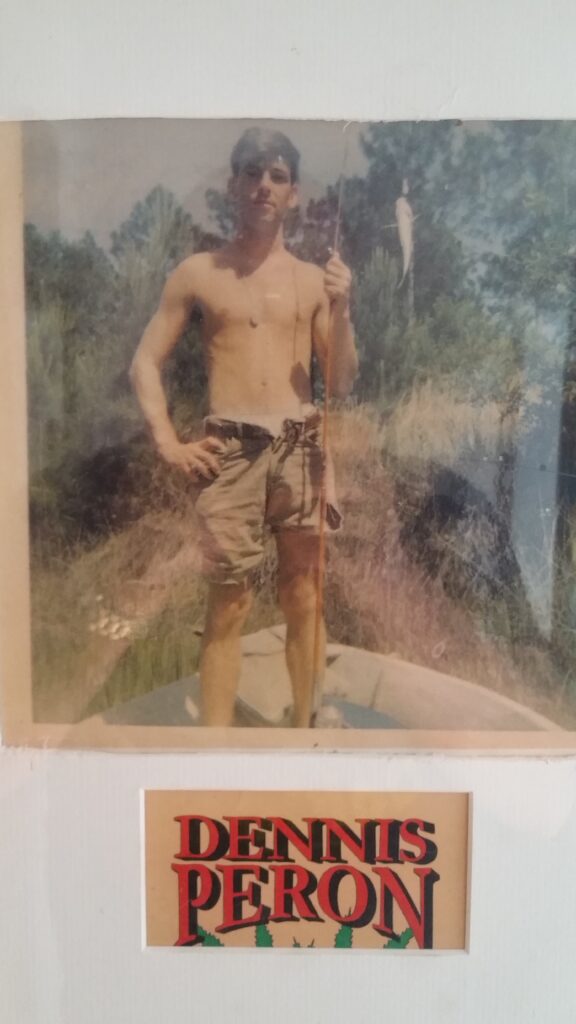
San Francisco in the 1970s was electric. The Castro District was blooming into a sanctuary for the LGBTQ+ community. And Dennis became a central figure, opening Big Top Pot Supermarket—a bustling cannabis commune and distribution hub—right in the heart of the neighborhood.
The AIDS crisis and a new kind of activism
Then came the AIDS epidemic. By the early 1980s, the virus was ravaging the gay community. Friends and lovers were dying in staggering numbers. Dennis’s own partner, Jonathan West, was diagnosed and suffered horribly from wasting syndrome—a brutal loss of appetite and weight that left many patients to starve. Dennis saw firsthand how cannabis could soothe nausea, restore appetite, and ease suffering. It became a moral imperative.
In 1994, after years of police raids and arrests, Dennis opened the San Francisco Cannabis Buyers Club—the first public medical cannabis dispensary in the United States. Housed in a five-story building on Market Street, it was a haven where AIDS patients and others with debilitating illnesses could safely obtain cannabis. At its peak, the Buyers Club served over 9,000 registered members.
Proposition 215: A revolution at the ballot box
The Buyers Club also became headquarters for the political push that would change everything. Along with activists like Brownie Mary Rathbun—a sweet grandmotherly figure arrested multiple times for baking cannabis brownies for AIDS patients—Dennis began drafting what would become Proposition 215.
The idea was simple yet revolutionary: give doctors the right to recommend cannabis to patients without fear of prosecution. It was a grassroots campaign powered by grief, hope, and an unshakeable belief in compassion over criminalization. Despite opposition from law enforcement and federal agencies, voters passed Prop 215 on November 5, 1996.
California became the first state to legalize medical cannabis, igniting a movement that would spread nationwide. Today, over 38 states have some form of medical cannabis law, all tracing back to that groundbreaking vote.
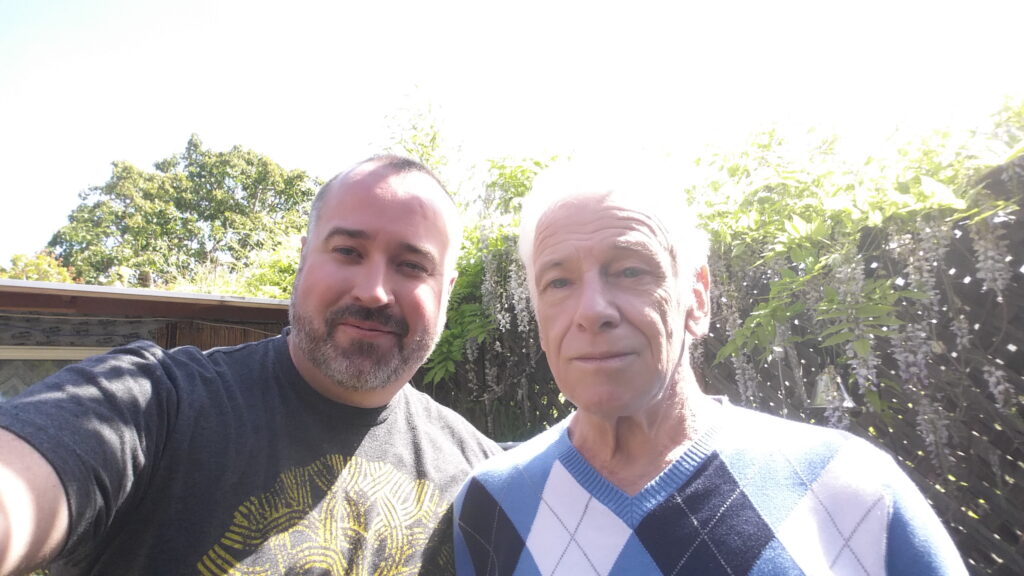
Legacy of compassion
Dennis’s victories were never without personal cost. He was raided, arrested, and vilified. The DEA targeted him, the police raided the Buyers Club, and political enemies tried to shut him down at every turn. Yet he never wavered. In every speech and interview, he returned to the same theme: compassion.
Before Dennis died in 2018 at age 72, he told the New York Times, “I came to San Francisco to find love and to change the world. I found love, only to lose him through AIDS. I had to do something.”
His generation of pioneers was aging, their stories at risk of being forgotten. Pebbles Trippet and Dennis Peron are two of the inspirations behind The Cannabis Trail—a cultural journey through Northern California that honors the pioneers, places, and moments that made legal cannabis possible.
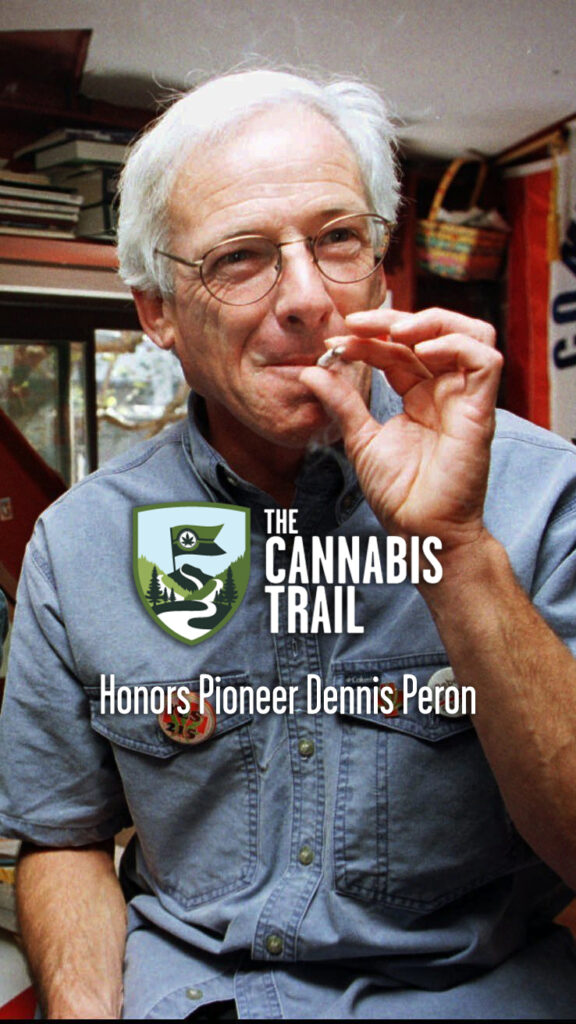
Dennis Peron’s legacy lives on not just in laws, but in every patient who finds relief through cannabis. Every time a dispensary opens its doors, every time someone chooses a plant over a pill, we are walking a path that Dennis helped clear.
So if you’re traveling through California, take a moment to take a walk in the Castro or stand near Market Street and breathe it in. You’re standing on sacred ground—a place where love, loss, and righteous defiance changed the world. And you’re following in the footsteps of a true pioneer.
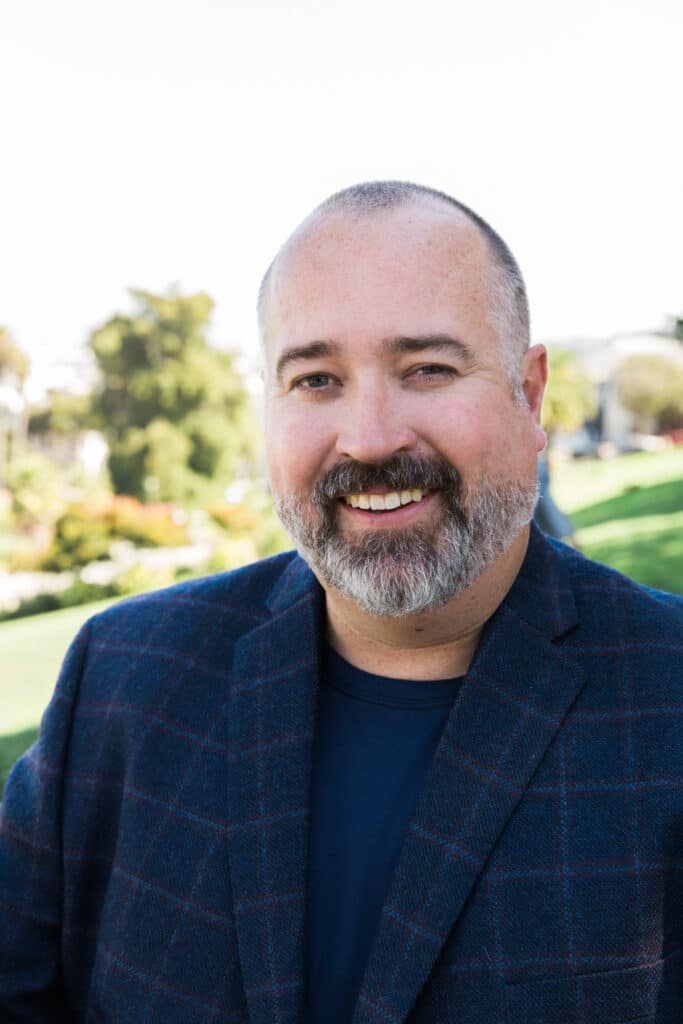
Brian Applegarth is the Director of Sales & Marketing for the Cannabis & Hemp Tourism Division at JNS Next, a boutique creative agency and media hub serving destinations and hospitality brands. In collaboration with MMGY Travel Intelligence, Applegarth co-authored the first ever national research on the cannabis-motivated travel audience in the United States. He has been quoted in Forbes, The Washington Post, Smart Meetings, Travel Weekly and elsewhere, and his innovative tourism work has been recognized by Visit California, US Travel ESTO Awards, the Clio Awards, and International Fairs & Expo Awards. Brian led the Cannabis & Hemp Task Force for the California Travel Association and Destinations International, the world’s largest association of destination organizations with over 700 member organizations including more than 7,500 destination professionals from 26 countries & territories around the globe.
For more information, contact Brian HERE



